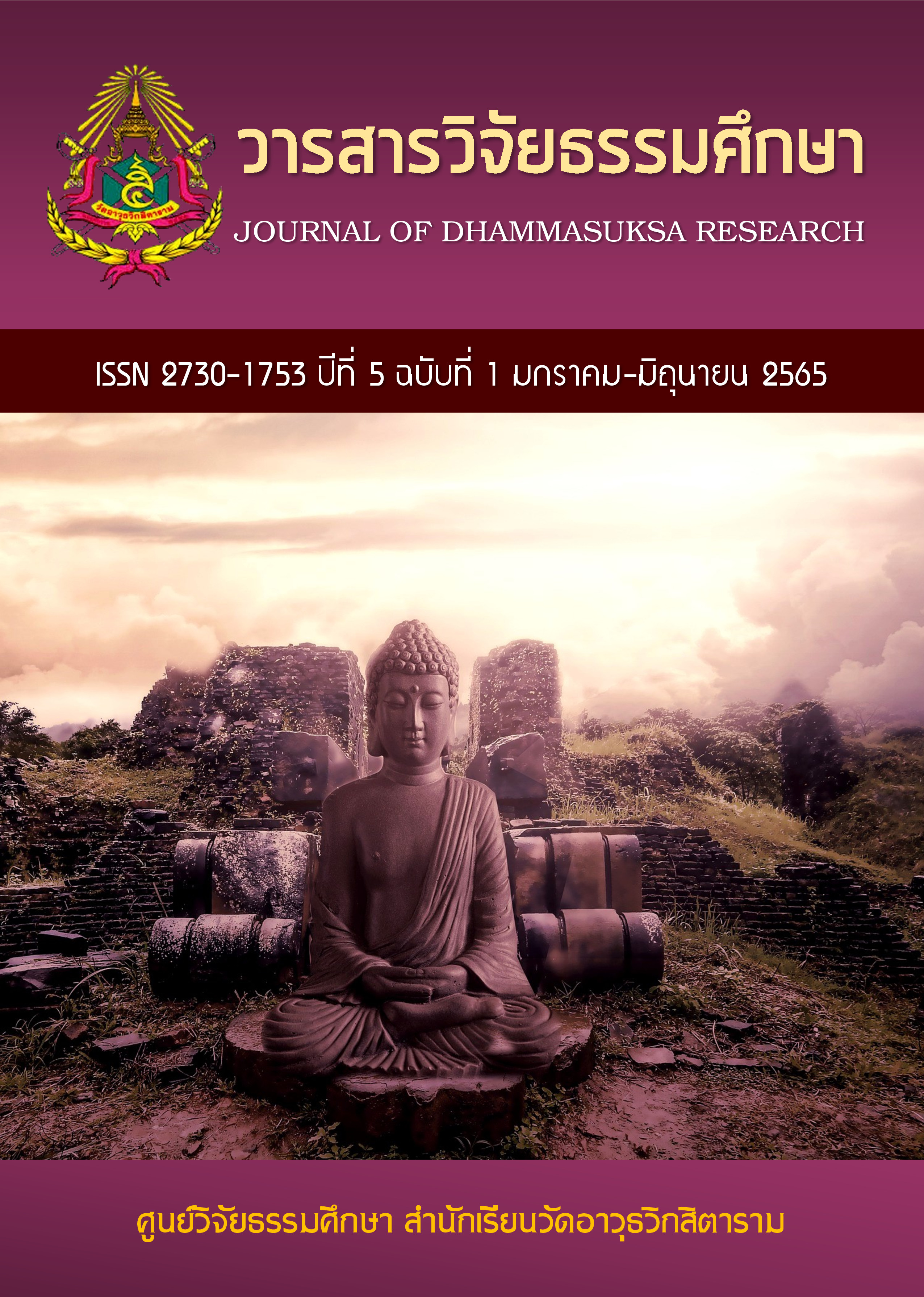Knowledge Management on Art Design in Universities under Liaoning Province
คำสำคัญ:
Liaoning Province, Art Design, Knowledge Managementบทคัดย่อ
The objectives of this research were: (1) to examine the components of knowledge management on art design in Universities under Liaoning Province; and (2) to develop the managerial guidelines of knowledge management on art design in Universities under Liaoning Province.
The research was a mixed methodology research, inculding quantitative research and qualitative research. Population was totalling 1886. The sample size was determined by Krejcie and Morgan’s Table, obtained by stratified random sampling method, totalling 327. The key informants were 9 experts/expertise who were instructors, President or deans, program director from three outstanding Art Design Universities with more than 5 years experience under Liaoning Province, obtained by purposive sampling method. The instruments used for data collection were semi-structured interview form, and five -level rating scale. The statistics used for data analysis were frequency, percentage, mean, Standard Deviation, and Exploratory Factor Analysis.
The research findings revealed that; (1) there are five components of knowledge management on art design in universities under Liaoning Province which were effecttive leadership, cultural management, organization structure, information technologys management and talent management. (2) there were 75 managerial guidelines of knowledge management on art design in universities under Liaoning Province.
เอกสารอ้างอิง
European Committee for Standardization. (2004). CEN. European Guide to Good Practice in Kn owledge management[ol] [2011-02-25]. http://www.cen.eu/cen/Sectors/Sectors/isss/ ce n%20Workshop%20Agreements/Pages/Knowledge%20Management2.aspx.
Eigirdas. Žemaitisa*. (2014). Knowledge management in open innovation paradigm context: high tech sector perspective. sciencedirect, 164-173.
Guo, Haiyan., Zhang, Lianying., Hong, Shuai & Huang, Shanshan. (2020). The Influence of the Pro-social Meaning Construction Mechanism on the Willingness to Hiding Knowledge from the Perspective of Knowledge Leadership. Chinese Journal of Management, 111-120.
Jiao, Ruixin. (2019). On the Management of Knowledge Economy in the New Economic Era. modern commerce, 104-105.
Jiang, Dengpan. (2011). Probe into the Cultivation Mode of Creative Quality Education in Art Design. ART EDUCATION,69-70.
Jiang, Dan. (2019). Research on the Path and Mode of Training General Talents in Art Design. famous tourist sites, 223, 226.
Jian, Shengyu. (2019). Promote Educational Talent Management with Institutional Advantages Critical Reflections on Contemporary Educational Reform Issue 7. Coastal Enterprise and Technology, 70-76.
Krishna. Prasad. Paudel., Prakash. C. Bhattarai., & Mahanand. Chalise. (2021). Interdependencies between knowledge management and academic performance in higher educational institutions. VINE Journal of Information and Knowledge Management Systems, 100-124.
Liang, Ruiyi. (2016). Analysis on the Structure of College Students’ Personal Knowledge Management Ability in Web2.0 Environment. Computer Education, 84-87.
Lynn. C. Emerson & Zane.L.Berge. (2018). Microlearning: Knowledge management applications and competency-based training in the workplace. Knowledge Management & E-Learning, 125-132.
Lai, Yang. (2020). The Status Quo of Talent Cultivation and Countermeasures Based on the Perspective of International Development Taking Art Design as an Example. all directions, 181.
Liu, Yi. (2019). Research on Optimizing Strategy of Incentive Mechanism in Talent Management in Universities. Ability and Wisdom, 226.
Mohammad. Reza. Sarmadi., Ziba. Nouri, Bahman. Zandi., & Masoud. Gholamali. Lavasani. (2017). Academic culture and its role in knowledge management in higher Education system. INTERNATIONAL JOURNAL OF ENVIRONMENTAL & SCIENCE EDUCATION, 1427–1434.
Miao, Honghui. (2019). The impact of transformational and transactional leadership styles on empl oyee innovation performance. Social science front, 240-244.
Rosnah. ISHAK., & Mahaliza, MANSOR. (2019). The Relationship between Knowledge Management and Organizational Learning with Academic Staff Readiness for Education 4.0. Eurasian Journal of Educational Research, 169-184.
Sun, Wei. (2016). Educational Exploration on the Knowledge Structure of Art Design. Grand View of Fine Arts, 164-165.
Sohail. Mazhar, & Muhammad. (2018). Relationship between Knowledge Management and Creativity among Teachers of Public and Private Sector Universities at Lahore. Bulletin of Education and Research, 91-104.
Umar. Farooq. Sahibzada., Khawaja. Fawad. Latif., Yan, Xu., & Roshi. Khalid. (2020). Catalyzing knowledge management processes towards knowledge worker satisfaction: fuzzy-set qualitative comparative analysis, Journal of Knowledge Management. 2373-2400.
Wang, Yanfei. (2010). The Construction and Development of Teachers' Community from the Perspective of Knowledge Management. Journal of Hunan University of International Economics, 74-77.
Wang, Fangguan. (2015). Knowledge management-a new dimension of graduate education management innovation. Course Education Research, 8.
Xiao, Sheng. (2016). Confusion of humanities and social science achievements evaluation, Art Observation. 25-26.
Yu, Jiefang. (2015). An Analysis of the Creative-oriented Talent Training Model of Art Design. Art Education, 232.
Yang, Weidong. (2020). Probe into the Diversified Talent Management Mechanism of University Think Tanks. Human resource development, 20.
Zhang, Dexiang. (2002). Thoughts on the "Reform of Decision-Making Mode in Colleges and Universities and Innovation of Teaching and Research Organizations". Liaoning Education Research, 5-10.
Zhang, Xuan. (2015). Research on the Professional Development Strategy of University Teachers from the Perspective of Knowledge Management. Chinese Journal of Education, 371-372.

ดาวน์โหลด
เผยแพร่แล้ว
รูปแบบการอ้างอิง
ฉบับ
ประเภทบทความ
สัญญาอนุญาต

อนุญาตภายใต้เงื่อนไข Creative Commons Attribution-NonCommercial-NoDerivatives 4.0 International License.


